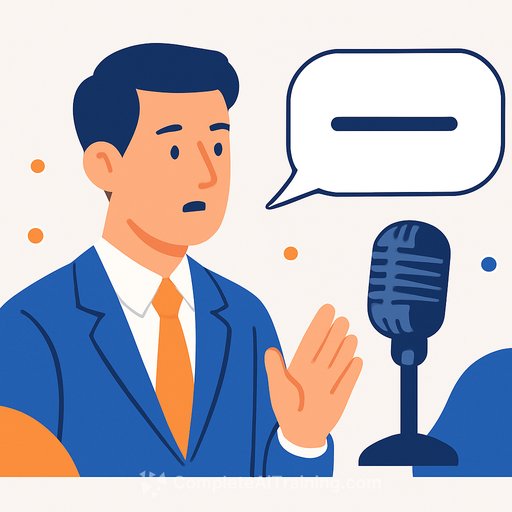Feeding AI, Fighting the Robo-Editor: A Working Writer's Playbook
Your work is being fed into AI. Sometimes you'll get a small check. Most times you won't. Either way, your words end up in data centers, humming forever. That permanence is a reason to raise your standards, not your blood pressure.
AI will sample your voice and remix it. It won't carry your intent, your lived references, or the point you grind toward by writing. That's where the line is: let machines polish the surface, but keep your hand on the steering wheel.
The "Dull-A-Tron" Problem
AI editors are great at rules and terrible at rhythm. They scold fragments, flatten idioms, and sprinkle commas like confetti. They over-insert "that," misread regional phrases, and push you toward bland clarity that reads like email policy.
- Expect: "Fix" recommendations for sentence fragments you meant to keep.
- Expect: Over-precise edits that miss subtext or tone.
- Expect: Comma inflation and "that" bloat.
- Watch: Idioms and Southernisms get flagged for no good reason.
Why We Still Use the Tools
Because they help. Spellcheck and grammar check save hours, especially if you struggle with letter reversals, skipped articles, or fast drafting that leaves typos everywhere. Early tools were clunky and slow. Today's are instant-and fussier than ever-but worth it.
- Great for: Catching typos, subject-verb agreement, doubled words, and basic punctuation.
- Great for: Speeding up cleanup on messy drafts so you can focus on ideas.
- Not great for: Voice, humor, pacing, and regional language. Protect those.
A Practical Workflow That Respects Your Voice
- 1) Draft fast. Don't edit. Get the point down.
- 2) Machine pass. Run an AI-assisted checker for typos and obvious misses. Accept mechanical fixes; ignore stylistic overreach.
- 3) Voice pass. Read aloud. Reintroduce intentional fragments, rhythm changes, and punchlines the AI tried to sand down.
- 4) Human pass. Trusted editor or peer for clarity, logic, and factual integrity.
- 5) Final tighten. Remove filler, keep pace brisk, end with a clear takeaway.
Guardrails That Keep AI from Sanding You Down
- Create a "voice whitelist." List your intentional rule-breakers (fragments, idioms, sentence starters). If your tool allows it, add them to style settings.
- Custom dictionary. Add product names, local slang, and proper nouns so they stop getting "corrected."
- Common-error sweeps. Run searches for your usual culprits (e.g., extra "that," "very," bloated commas).
- Decision rule: Mechanical = accept. Stylistic = consider. Voice = yours.
How to Prove a Human Wrote It (to Humans and Software)
- Have a point. Start with the thesis. Each paragraph earns its keep or gets cut.
- Be specific. Concrete details beat generic filler. Place, time, stakes, and a clear arc.
- Vary your cadence. Mix short, punchy lines with longer, winding thoughts. Real voices breathe.
- Don't depend on AI detectors. They're inconsistent, yet clients and teachers still use them. Know the terrain and write with your fingerprints on the page. See Turnitin's AI detection overview.
Rights, Reality, and Small Checks
Publishers may license your work for AI training and send a modest fee. It's real, but small. If you can, negotiate clarity in contracts, track where your work appears, and request opt-outs when available. Meanwhile, assume your words will be ingested-so make them good words.
Tools Mentioned
- Microsoft Copilot for quick suggestions-use it, don't obey it.
- AI tools for copywriting if you want to audit your stack and pick smarter assistants.
The takeaway: let software catch the crumbs and keep your flavor. AI can tidy sentences. It can't think for you. That's still the job.
Your membership also unlocks:






